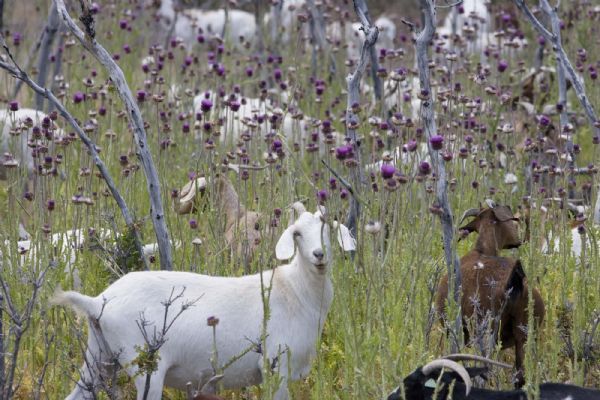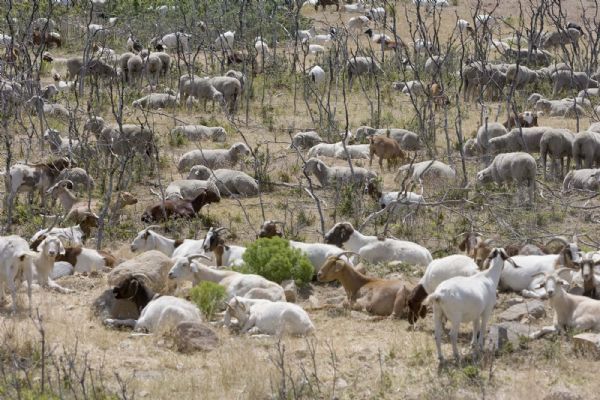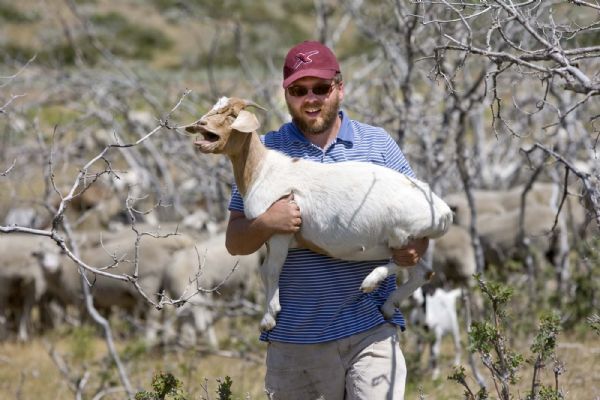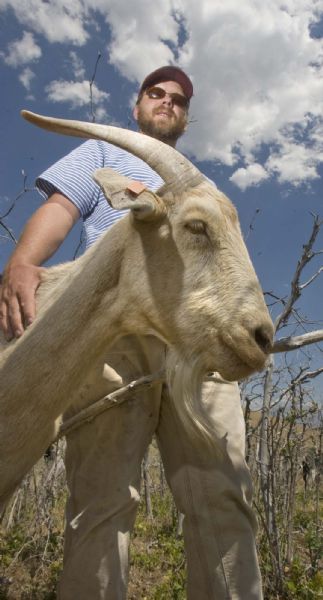This is an archived article that was published on sltrib.com in 2010, and information in the article may be outdated. It is provided only for personal research purposes and may not be reprinted.
Goats may be the garbage-disposals of the animal world, but a new landscaping trend has them putting their stomachs to work.
A handful of Utah organizations and residential homeowners are using goats as an eco-friendly alternative to lawn mowing and clearing away unwanted weeds and shrubs.
Jason Garn, owner of D'Goat Ranch in Box Elder County, says his goats are environmentally-friendly -- and more effective at clearing away vegetation than traditional weed-killing methods.
"The whole point of spraying and mowing is to get the weeds under control," Garn said. "But seeds can stay in ground for 10, 20, 30 years, and when conditions are right, they'll pop up. Most weeds also have [extensive] root systems that take years to get rid of. The goats eating leaves will stress out the weed and eventually kill its roots."
Goats are the perfect natural weed-wackers because, unlike other animals, they fully digest plant seeds so they don't reappear in the animals' waste and get back in the soil, he said. They leave behind nutrient-rich manure for the plants you want, while their hooves also aerate the ground.
Garn rents his herd, in groups of 100 to 1,000 goats. Prices start at about $300 for a one-time residential job. He'll bring portable electric fences to the job site, to keep the goats from roaming.
Spring is the best time to use goats for weed control, as that's when vegetation is most appealing to the animals. But a handful of Utah communities and organizations hire Garn and his goats mid-summer for large scale fire prevention.
Goats have been weed-whacking at Camp Williams since 2003, said Sean Hammond, a manager for the Utah National Guard. They hire goat herds to create firebreaks, which aim to slow down flames by eliminating vegetation. The goats are typically on the land for about a month in preparation for the fire season, June through early September, he said.
The conventional way to build firebreaks is with a bulldozer, which completely gets rid of the plants and their roots. "But we've found that with no roots in the ground, there is more possibility for erosion," Hammond said. "The goats trim the brush right down to the soil, which is exactly what we want, because the roots are still intact and the grass grows back in fall."
Garn's goats also have made regular appearances for the past five years in Emigration Canyon, where both homeowners and the community council have hired them for fire prevention, said Kathy Christensen, the council's Firewise chairman. "The goats are very suited to the area and do a wonderful job trimming the grass," she said.
And while the goats are fantastic eaters, Christensen said it can be a little trying for some residents to have a herd around their homes during the months of July and August.
"Sometimes a goat would get loose and eat someone's petunias, but they really are doing all of us a great service by keeping the fire hazard down," Christensen said.
For other Emigration Canyon residents, renting a goat herd offers a way to clear underbrush from their property. Catherine Council and her husband Norman used the goats to clear an area of weeds and brush next to their house. She said it took about 70 goats one week to clear an acre.
"They really do eat everything around them," Council said. "The neighborhood kids would come by and watch them. I found the goats very amusing and endearing."
Prices for residential jobs start at about $300. For more information about D'Goat Ranch, visit www.dgoats.com or call Jason Garn at 801-440-2149.









